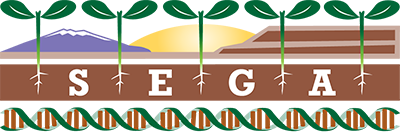You are here
Genotypic variation in foundation species generates network structure that may drive community dynamics and evolution.
Publication Type:
Journal ArticleSource:
Ecology, Volume 97, Issue 3, p.733 - 42 (2016)ISBN:
0012-9658URL:
http://www.ncbi.nlm.nih.gov/sites/entrez?Db=pubmed&DbFrom=pubmed&Cmd=Link&LinkName=pubmed_pubmed&LinkReadableName=Related%20Articles&IdsFromResult=27197399&ordinalpos=3&itool=EntrezSystem2.PEntrez.Pubmed.Pubmed_ResultsPanel.Pubmed_RVDocSumhttp://www.ncbi.Keywords:
Animals, Biological Evolution, Computer Simulation, Food Chain, Genetic Variation, Genotype, Insecta, Models, Biological, PopulusAbstract:
<p>Although genetics in a single species is known to impact whole communities, little is known about how genetic variation influences species interaction networks in complex ecosystems. Here, we examine the interactions in a community of arthropod species on replicated genotypes (clones) of a foundation tree species, Populus angustifolia James (narrowleaf cottonwood), in a long-term, common garden experiment using a bipartite "genotype-species" network perspective. We combine this empirical work with a simulation experiment designed to further investigate how variation among individual tree genotypes can impact network structure. Three findings emerged: (1) the empirical "genotype-species network" exhibited significant network structure with modularity being greater than the highly conservative null model; (2) as would be expected given a modular network structure, the empirical network displayed significant positive arthropod co-occurrence patterns; and (3) furthermore, the simulations of "genotype-species" networks displayed variation in network structure, with modularity in particular clearly increasing, as genotypic variation increased. These results support the conclusion that genetic variation in a single species contributes to the structure of ecological interaction networks, which could influence eco-ogical dynamics (e.g., assembly and stability) and evolution in a community context.</p>
- Log in to post comments
- Google Scholar
- RTF
- EndNote XML
- RIS
Theme by Danetsoft and Danang Probo Sayekti inspired by Maksimer
